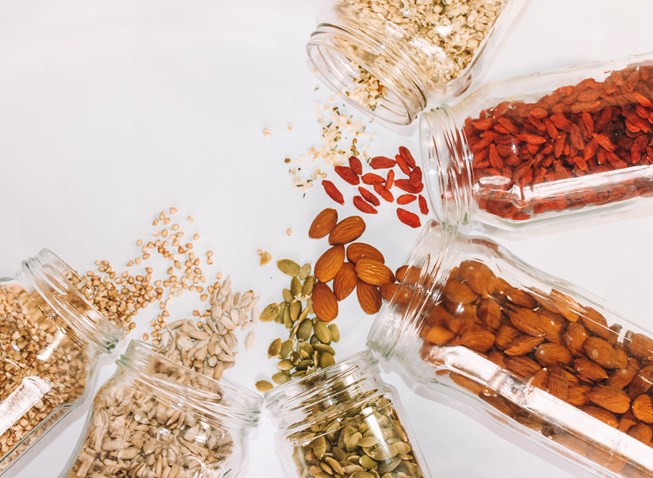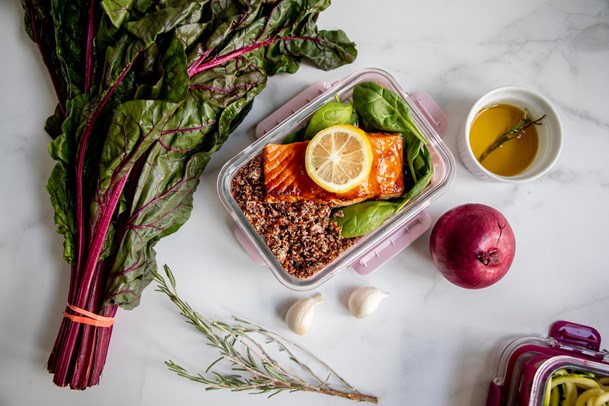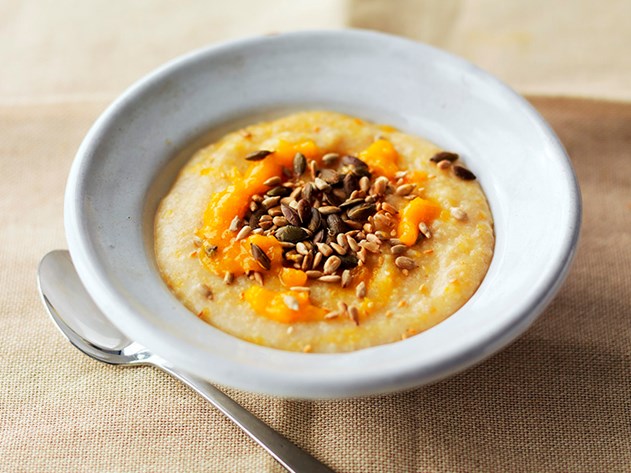Diabetes and Vitamins
Let food be thy medicine
Foods contain the essential mix of minerals and vitamins, enzymes, fibre, and other substances that help your body absorb and use these nutrients. Eating a well-balanced meal is much healthier than any multivitamin supplement.
Many of us would like to know whether there are any supplements that will improve our diabetes management?
The Greek physician Hippocrates said: “Let thy food be thy medicine, and the medicine be thy food.” The Philosophy behind this: “focus on prevention”.
Our food should be our medicine and our medicine should be our food
- Hippocrates
The growing use of major functional foods and herbs with anti-diabetic activity particularly focuses on the prevention of Type 2 Diabetes (T2D). Many people rely on traditional herbal and complementary remedies such as cinnamon, garlic, ginger and turmeric which are said to help with blood glucose control.
These remedies can be homemade or bought from local shops, and while they may have benefits, they should not be a substitute for your medications without any consultation with your health care professional.
There continues to be research into a range of micronutrients, supplements and functional foods and their effect on diabetes management and their link with causing diabetes. This includes, for example, vitamin B3, chromium, magnesium, antioxidants, vitamin D, zinc, caffeine, cinnamon, chilli, karela and methi. There is limited evidence to support the use minerals and vitamins in the prevention or management of Type 2 Diabetes.
To Supplement or not to supplement?
Vitamin and mineral supplements are becoming increasingly popular, but they have no clear benefits for people with diabetes unless you have a deficiency or your doctor prescribes them.
An exception to this is supplements such as folic acid and vitamin D for pregnant women and those planning to have a baby.
A well-balanced diet should aim to get all the nutrients your body needs as recommended by the British Nutrition Foundation. If you are concerned that you may be at risk of lacking a particular nutrient, discuss this with your healthcare team.
You can ensure that you don’t take too much of any vitamin by only taking the recommended dose on the label unless advised by your doctor, dietitian, pharmacist or chemist.

Functional Foods
Functional foods are natural, whole foods that are rich in nutrients like vitamins, minerals, antioxidants, and healthy fats.
Along with functional foods, there are some foods such as cereals, eggs and milk, which have been fortified with additional ingredients, such as vitamins, minerals, probiotics, or fibre, to increase the food’s health benefits. These foods not only supply your body with the vitamins and minerals it needs but also support overall health.
In recent years, functional foods have gained popularity due to their nutrient richness and association with a number of powerful health benefits. For example, they may protect against heart disease (Anti-Hypertensive Herbs and Their Mechanisms of Action: Part II.)
Fortified functional foods can also fit into a balanced diet. Functional foods can prevent nutrient deficiencies, as well as enhance health by boosting your intake of important nutrients like vitamins, minerals, fibre, and probiotics. Probiotics are the live bacteria and yeasts e.g. yoghurt, cheese, fermented foods, and are connected to improved gut health, decreased inflammation, and improvements in cognitive abilities.
Probiotics, polyphenols and antioxidants
An increasing number of epidemiological investigations show that a diet rich in foods with high content of probiotics, polyphenols and antioxidants may be related to a reduced risk of type 2 diabetes and predisposing factors.
Polyphenols are found in spinach, broccoli, red onions, asparagus, red lettuce, shallots, carrots, artichoke, olives, berries, dark chocolate, coffee, nuts, black and green tea, rosemary, thyme and peppermint.
Here are some examples of conventional functional foods you can add to your shopping basket:
- Fruits: berries, kiwi, pears, peaches, apples, oranges, bananas
- Vegetables: broccoli, cauliflower, kale, spinach, zucchini
- Nuts: almonds, cashews, pistachios, macadamia nuts, Brazil nuts
- Seeds: chia seeds, flax seeds, hemp seeds, pumpkin seeds
- Legumes: black beans, chickpeas, navy beans, lentils
- Whole grains: oats, barley, buckwheat, brown rice, couscous
- Seafood: salmon, sardines, anchovies, mackerel, cod
- Fermented foods: tempeh, kombucha, kimchi, kefir, sauerkraut

Action: Copy and paste the above ‘Healthy Shopping Lists Food’ into your phone notes or shopping list and add some of them to your next shopping basket.
Here are some examples of modified functional foods (fortified foods are those that have nutrients added to them that don’t naturally occur in the food).
- fortified dairy products, such as milk and yogurt
- fortified milk alternatives, such as almond, rice, coconut, and cashew milk
- fortified grains, such as bread and pasta (Keeping in mind portion control based on Low carb diets)
- fortified cereal and granola
- fortified eggs
Some meal examples including functional foods:
Fish Dish
Oily fish, like salmon, sardines, trout and herring, are among some of the best choices. They have higher amounts of omega-3 fatty acids, which may help lower risk of heart disease and improve infant health when consumed by women during pregnancy or while breastfeeding.
Whole Grains
Oatmeal porridge with chia seeds and nuts has high dietary fibre. It may help lower cholesterol and assist with blood glucose control.

Other whole grains, such as whole barley, rye, sago and buckwheat, also offer a variety of health benefits. Its also a good idea to keep portions based on low carb diets, as foods such as grains, cereals and pounded cereals.
Beans
Beans, peas and legumes provide dietary fibre. Beans, pulses and chickpeas can be added to salads, soups, curries, stews and rice dishes or eaten well with avocado, tomatoes and oily fish.
Berries
Berries such as handful of strawberries, cranberries, blueberries, raspberries or blackberries, are functional foods. Not only are they low in calories, they are also low in carbohydrates. Berries can be easily mixed into a blender with some nuts, seeds and some Greek-style yoghurts for wholesome smoothies. Frozen berries are just as healthy a choice.
Unsalted Nuts
A handful of nuts make a great snack, will help you feel full and may help promote heart health. Include a handful of cashews and almonds, which are good sources of magnesium and can also support in managing blood pressure. Be mindful that nuts can be high in calories.
Many of these foods are rich in antioxidants. Antioxidants help neutralize harmful compounds known as free radicals, helping prevent cell damage and certain chronic conditions, including heart disease and certain cancers.
Some functional foods are also high in omega-3 fatty acids, a healthy type of fat shown to reduce inflammation, boost brain function, and promote heart health (8Trusted Source).
Other functional foods are rich in fibre, which can promote better blood glucose control and delay the onset of conditions such as Type 2 Diabetes, obesity, heart disease, and stroke. Fibre may also help prevent digestive disorders, including diverticulitis, stomach ulcers, hemorrhoids, and acid reflux.
Take home message
Enjoying a wide range of nutrient-rich functional foods as part of a healthy diet can help ensure that nutritional needs are met.
Make it a habit. Start adding some of these foods to your existing breakfast, lunch and dinner to get a better balance. It starts with adding them just one meal per week. What are you going to add first?

Top Tip: Add salads and vegetables to your plate first.
Functional foods may help prevent nutrient deficiencies, protect against disease, and promote proper growth and development. Functional foods can be used to boost your intake of important nutrients, fill any gaps in your diet, and support overall health. In addition to enjoying a variety of healthy whole foods, you can include more fortified foods in your diet to fill any nutritional gaps and support better health.
Most people can get all the vitamins and minerals they need from a balanced diet and time in the sun. In some cases, a supplement can have benefits, but they are not a substitute for a healthy, balanced diet.
Before taking a supplement, do not stop your diabetes medication. Make sure your information is reliable, and speak to your doctor, dietitian, a pharmacist or a chemist if unsure.
Diabetes UK does not recommend the use of herbal remedies and supplements as there is not enough evidence that they are safe and effective for people with diabetes to use.




